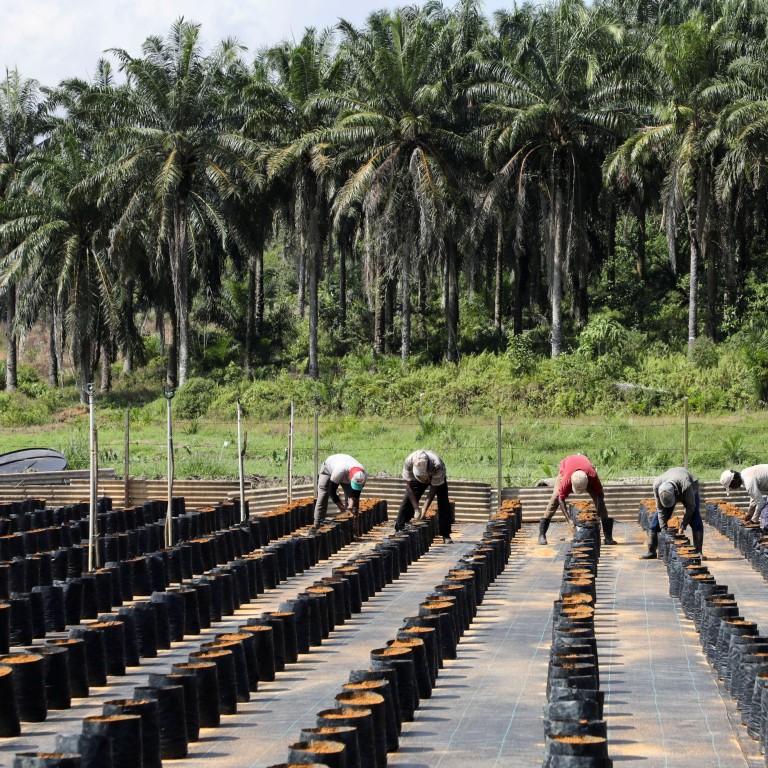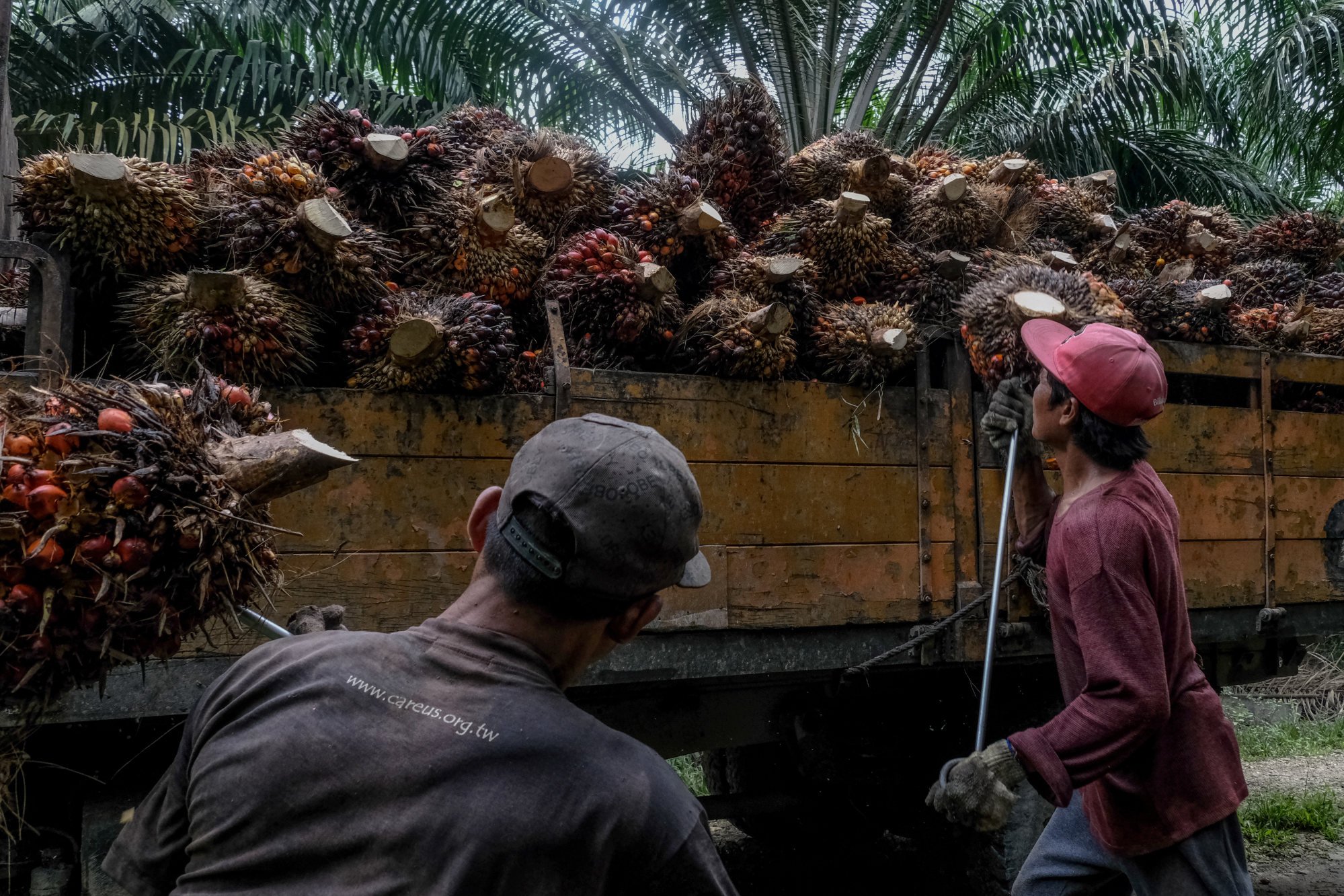
Shortage of foreign palm oil workers in Malaysia adds worry to global vegetable oil supplies hit by Russia-Ukraine war
- The shortage of foreign workers to harvest palm fruits in Malaysia began during the pandemic as border curbs kept out migrant workers
- Fewer workers means a reduction in palm oil production adding worries to vegetable oil supplies already affected by Russia-Ukraine war
“With foreign labour coming in, I hope production will increase from 18.1 million tonnes [last year] to 20 million,” the minister, Zuraida Kamaruddin, told an industry conference in Kuala Lumpur.
About 80 per cent of Malaysia’s plantation workers are migrants, most of them from neighbouring Indonesia.

The benchmark palm oil contract on the Bursa Malaysia Derivatives Exchange was down 1.3 per cent at 6,543 ringgit a tonne, off its all-time high of 7,108 ringgit (US$1,700.89) last week.
Malaysia’s palm planters have battled a worsening labour shortage since the start of the coronavirus pandemic as border curbs kept out migrant workers, slashing the numbers available to harvest and fertilise the perishable palm fruits.
In September, authorities approved the recruitment of 32,000 migrant workers for palm plantations, with Indonesian migrant workers expected to arrive around mid-February.
Asia faces food shortages as Russia-Ukraine fighting hits shipments
But analysts were sceptical that workers could be ready in time.
“Even if they [workers] arrive, it will take time for training, as you’re not looking necessarily at skilled workers, you’re looking at people who don’t have any harvester experience,” Julian McGill, the Southeast Asia head at LMC International, told Reuters.
Global supplies of edible oil stand to take a hit in coming months as dry weather reduces soybean production in Brazil, the world’s biggest exporter of the oilseed, while Russia’s invasion of Ukraine has closed ports.
Russia and Ukraine account for 80 per cent of global exports of sunflower oil, which competes with palm.

